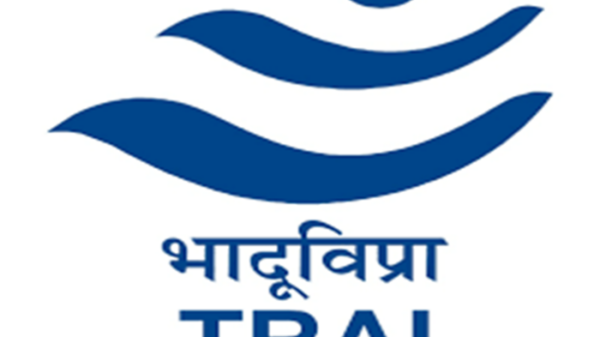An India Data Office (IDO) will be set up by the Ministry of Electronics and Information Technology (MeitY) to consolidate data access and sharing of public data repositories across the government and other stakeholders, according to the Draft India Data Accessibility & Use Policy 2022. The draft policy also proposes a data management unit in every ministry, headed by Chief Data Officers, which will work closely with the IDO to implement the policy.
The IDO will be responsible for coordinating with ministries, states, and other schematic programs to identify and provide access to high-value data (HVD). The access will be provided through various mechanisms to interested parties like researchers, start-ups, enterprises, individuals, and government departments.
Data has grown to be an important economic and social resource and, in India, the government is the biggest data repository. A policy framework could be beneficial in streamlining government data sharing which faces several bottlenecks today.
Feedback can be submitted via email until March 18, 2022, at kbhatia.gov.in and pmu.etech@meity.gov.in.
Key points of the India Data Accessibility & Use Policy
Applicability: The policy will be applicable to all data and information generated by the Indian government directly or through authorised agencies by various ministries and autonomous bodies. Moreover, state governments will be free to adopt the provisions of this policy.
Excluded categories of data: The policy stipulates that data from every government ministry shall be open and shareable by default unless:
- Categorised under the negative list of datasets.
- Categorised under restricted access and shared only with trusted users – as defined by the concerned ministry under a controlled environment.
Establish searchable data inventories: The policy directs all government ministries to identify existing data assets and create detailed, searchable data inventories with clear metadata and data dictionaries. The approved inventories will then be fed into a government-wide searchable database for government-to-government data sharing.
- Integrate with open government data portal: MeitY has asked all data portals maintained by ministries to be integrated through APIs or other appropriate integration mechanisms with the open government data portal. The IDO will provide the departments with technical and implementation support for the integration.
- Identify High-Value Datasets: The India Data Council (elaborated below) has been asked to devise an indicative framework for HVDs. The draft explains that HVDs will be defined based on their “degree of importance in the market, degree of socio-economic benefits, impact on India’s Al strategy and performance on key global indices”.
- Metadata standards: MeitY has directed every central department to adopt and publish its domain-specific metadata and data standards. “These standards should be compliant with the interoperability framework, policy on open standards, Institutional Mechanism for Formulation of Domain-specific Metadata and Data Standards,” the policy read. The India Data Council will finalise data standards and metadata standards.
Price discovery will be set by IDO: The policy prescribes that minimally-processed datasets will be made available at no cost to promote innovation and research & development. However, not all data sets will be free as per the policy:
- Certain detailed data sets that have undergone value addition may be valued by the departments of central and state governments.
- The IDO will notify licensing frameworks and valuation models that enable fair price discovery to be used by ministries.
- Pricing for restricted access data sharing will be decided by the government agency in a transparent manner.
Data Anonymisation and Privacy Preservation: MeitY said that reference anonymisation tools and decision-making frameworks will be provided to all ministries to assist data officers in managing data sharing requests. It will be the responsibility of all ministries to comply with the minimum anonymisation standards defined by IDO/MeitY.
- Specify data retention: The policy states that every central government department will have to define its data retention period for specific datasets and ensure compliance with the same while managing storage and sharing of datasets. MeitY will look to develop a broad set of guidelines to help ministries define their data retention policy.
Provision of data-sharing toolkits: A data-sharing toolkit will be provided to all ministries to “help assess and optimally manage risk associated with data sharing and release”, the policy revealed. It will help data officers to identify whether the dataset qualifies for release, restricted sharing, or needs to be on the negative list, identify the appropriate release mechanism, and the required degree of anonymisation.
- Data will belong to the government: The policy averred that the data shall remain the property of the concerned department which collected it.
- Cite the source of data: Entities that acquire the data will have to cite the original data source and assume all responsibilities as to the “use, analysis and interpretation of the data being provided” the policy said.
- Ensure compliance: The data sharing must be in compliance with guidelines for legal, security, IPR, copyrights, and privacy requirements.
Principles laid down in the document: The policy said that data sharing and governance in India should be open, interoperable, and transparent. Some of the other factors were:
- Integrated and technology agnostic
- User-centered practices and systems
- Risk management over risk avoidance
- Trust among stakeholders, systems, and transactions
- Privacy and security by design
- Well-defined accountability for all stakeholders
- Equal and non-discriminatory access
- Regulatory clarity and structured enforcement
- Proactive data sharing for innovation and research
- Protection of Intellectual Property
MeitY also said that it will come out with detailed implementation guidelines which will include the data sharing toolkit, criteria as well as a mechanism for restricted access data sharing, licensing frameworks, and monetisation models in the future.
What is the proposed framework for India Data Council?
The ministry is also proposing to set up an India Data Council which will comprise the India Data Officer and Chief Data Officers of state and central government departments. MeitY also wrote that the council will be aided by a dedicated support unit to coordinate data sharing across ministries, provide technical support, and evaluate their performance periodically.
The council will be expected to carry out tasks that require deliberations across ministries and state governments such as laying down frameworks for:
- Defining high-value data sets and value datasets;
- Finalising data standards and metadata standards;
- Reviewing the implementation of the policy
Also Read:
- Karnataka unveils its own consent-manager framework for data sharing by citizens
- Summary: What a new report has to say on government’s Non-Personal Data Sharing Framework
- Data Protection Bill: How government access to data is carved out of fiduciary obligations #NAMA
Have something to add? Subscribe to MediaNama here and post your comment.





























